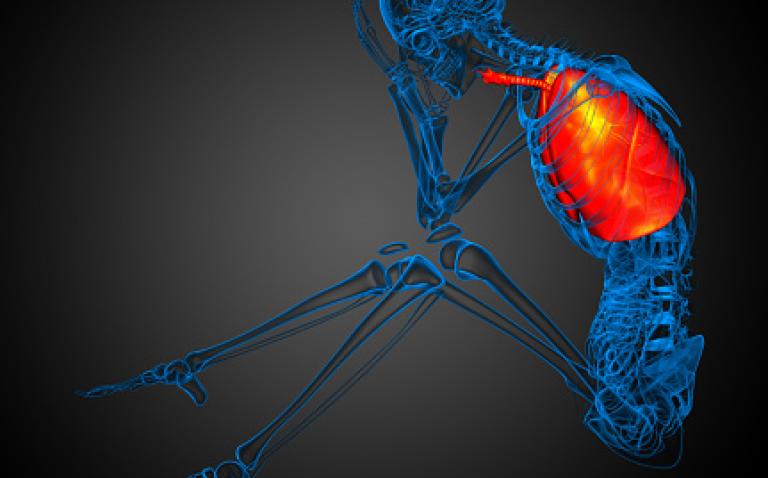The National Institute for Health and Care Excellence (NICE) has today announced a positive recommendation for GSK’s Nucala®▼(mepolizumab) for use in a sub-group of adults with severe refractory eosinophilic asthma in England and Wales.1
Mepolizumab is the first biologic therapy that targets interleukin-5 (IL-5) in severe asthma. IL-5 plays an important role in regulating the production and survival of eosinophils, an inflammatory cell known to be important in this disease. This first in class biological medicine targeting this specific type of severe asthma is now also the first to be granted national access by NICE. It will be made available to patients in specialist centres providing severe asthma services.
For many of the 4.8 million people with asthma in England and Wales,2 existing therapies can provide adequate control of their symptoms if used appropriately.3 However, a significantly smaller group of people with severe refractory eosinophilic asthma remain at high risk of asthma attacks.4 These patients have few treatment options available to them,4 are higher users of healthcare resources5 and could be suitable for this new treatment.
Commenting on the decision, Dr Stephen McDonough, GSK’s UK and Ireland Medical Director, said “This is great news for eligible adult patients in England and Wales living with severe refractory eosinophilic asthma. It will enable healthcare professionals to offer a targeted treatment to this small but difficult-to-treat group of patients. Severe asthma is a debilitating condition. For many patients, despite taking high doses of inhaled medicines, and often oral corticosteroids, their condition remains uncontrolled putting them at high risk of frequent and serious asthma attacks which can sometimes end up with them being hospitalised.”
NICE’s decision follows marketing authorisation in Europe in December 2015 and positive restricted advice by the Scottish Medicines Consortium for use within NHS Scotland in June 2016.6
References
- Official NICE guidance 2016 [online]. Available at https://www.nice.org.uk/guidance.
- Asthma UK. Asthma facts and FAQs. [online]. Available from: http://www.asthma.org.uk/asthma-facts-and-statistics [Last accessed: November 2016]
- American Thoracic Society 2000. Proceedings of the ATS Workshop on Refractory Asthma [online]. Available from: https://www.thoracic.org/statements/resources/allergy-asthma/refracasthma.pdf. [Last accessed: November 2016]
- Peters et al. (2006) Uncontrolled asthma: A review of the prevalence, disease burden and options for treatment. Respiratory Medicine: 100, 1139–1151.
- Campo et al. (2013). Phenotypes and Endotypes of Uncontrolled Severe Asthma: New Treatments. J Investig Allergol Clin Immunol; Vol. 23(2): 76-88
- Official SMC guidance 2016 [online]. Available at http://www.scottishmedicines.org.uk/SMC_Advice/Advice/1149_16_mepolizumab_Nucala/mepolizumab_Nucala [Last accessed: November 2016]










